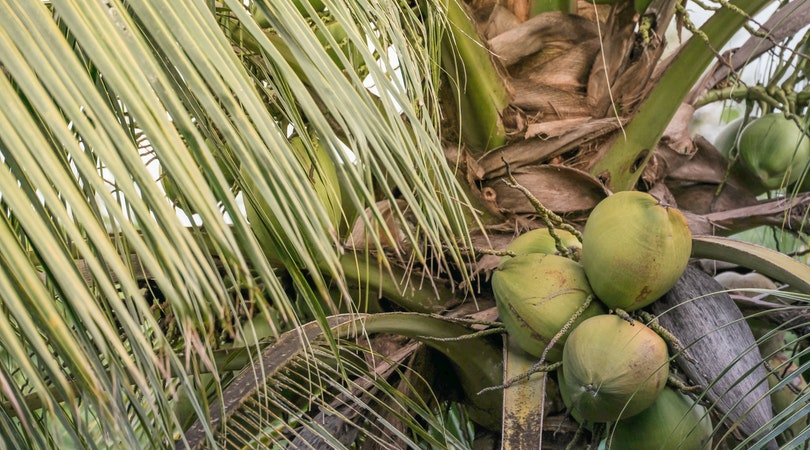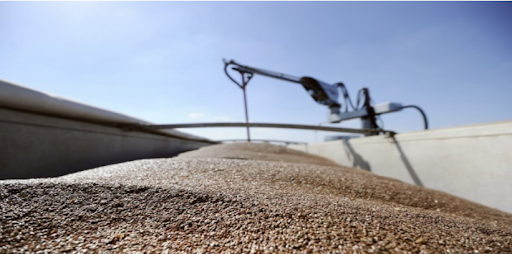Farming Businesses
How to Start Coconut Farming in Nigeria
Is coconut farming profitable? Check out this article on the capital and material you need.

It is certainly a good business to start in coconut farming in Nigeria. This is a kind of farming that is more rewarding when done on a large scale – having a coconut plantation. The high demand for coconut seed by coconut industries in Nigeria has made the profitability of the farming business.
These manufacturers utilize the seeds in the production of margarine or for broiling. Also, the roots are utilized for textile and color by clothing industries, etc. However, Nigeria is the eighteenth-largest producer of coconut in the world. You can see the picture of how productive farming is in the country.
If you are contemplating what’s involved in getting started, this article will highlight more on that.
Is Coconut Farming Profitable?
Let us perceive how income-generating coconut farming is. Let’s just do a typical example from what is obtained in a real case. Assuming you have 100 coconut trees and each tree brings out 200 nuts and you sold each nut for 100 Naira. By doing the simple mathematics 100 Naira × 200 nuts gives you ₦20,000.
Then for the 100 trees you have: 20,000 × 100 trees = ₦2,000,000. Without much talk, this is to say for 100 coconut trees you will make nothing under 2 million in a year.
How to Start Coconut Farming in Nigeria
Just like any other agricultural farming in Nigeria, coconut planting requires following a process. Starting from when the seed is put into the ground down to when it reaches time for harvest, there are many important things involved in the process. The following are the step-by-step instructions on how to start coconut farming in Nigeria:
1. Preparation of Farmland
Coconut plantation does require a large open space for them to be able to grow well. Ensure to look for land that is good for the plantation and that can be accommodative enough to contain a commercial coconut farm. Choose an appropriate site and the land ought to be your own territory or a place you can rent for around 50 years or more.
Also, the best soil for coconut cultivation is sandy topsoil which is on the grounds that it can hold and deplete water. I would like to advise that you buy in a rural area near the town (suburb) where you can purchase land at a low cost. This should also be near to your market. Ensure to make pathways in the land, clear grasses, and eliminate bushes and trees.
Furrow and harrow the land for simple activity and also treat pests.
2. Choose your Coconut Varieties
If you would want to make the most in your coconut farming, you should go for high-yielding species of seed. The two regular hybrid varieties developed in Nigeria are Tall × dwarf, and dwarf × tall. Half and half coconuts are between varietal crosses between two morphological types of coconut trees.
Specifically, mixtures from Dwarf and Tall, Tall and Tall varieties likewise produce high-yielding coconut palms. For the most part, cross-breed or hybrid coconuts are more prevalent as far as quality and amount of copra creation are concerned. They additionally have the best measure of copra per nut.
In that capacity, they are by and large the best specie for commercial coconut farming. Moreover, dwarf varieties have a short life expectancy yet develop quickly and as the name suggests are short in height.
3. Planting the Coconuts Seedlings
After you might have finished with the nursing of the coconut seedlings, you should now transplant them a year from the nursery or when they show at least 5-6 leaves. If you are not able to nurse the seed yourself, it’s preferable to buy already nursed plants for commercial coconut farming. This will make the start of your coconut plantation easier.
The planting should begin around April and May during the start of the rainy season. When planting, utilize square planting just like oil palm planting. 7.5m × 7.5m is the ideal separation space for coconut planting. Anyway, you can pick any dividing that favors you so far it falls within this range.
Moreover, ensure to give shade to the relocated seedlings in other to forestall loss of dampness at the growing stage of the plant. Additionally, stake the seedlings to keep them from falling.
4. Irrigation, Weeding, and Manuring
Having finished with the planting of the coconut, let us now take a look at how to maintain the plant for a high yield. This includes irrigation, weeding, and the application of manure to the coconut plants.
1. For the irrigation, ensure to inundate the plant during the dry season with 50 liters of water each week, this will expand nuts yield by half.
2. Weeding should be carried out 3 times each year. It will be astute to weed coconut manor once the weed begins to sprout out. For a large-scale farm, use workers or machines to do the weeding.
3. In adding manure to the coconut plants, use natural compost like cow dung which is the thing that most farmers use. Be that as it may, on the off chance that you need to utilize inorganic manures, a blend of Urea, ammonia, and potash is ideal for coconut farming and for the best outcome.
5. Pests and Diseases Control
Pests and diseases pose a threat to the productivity of your coconut farming produce. The usual ones are creepy crawlies, red palm weevils, bugs, dark-headed caterpillars, and so on. Normal infections are leaf rot, bud rot, stem bleeding, wilt, and so forth.
Here is how to get rid of these pests and diseases:
Keep away from injury on the storage compartment, hand-pick the creepy crawlies, use neem oil or water; you can also apply pesticides as needs be; Use traps to get pests like rodents; or disinfect the whole plantation and farm area. Read our guide on how to start fumigation business in Nigeria if you are also thinking of starting a fumigation business.
6. Harvesting your Coconuts Produce
After waiting for long 4 – 9 years for the coconut to be ready for harvest, now is the time to reap what you sow. Note that this duration relies upon the variety planted and their system. From the time it is available as coconut fruits to when it is developed for collection about a year.
They accomplish full size within a half year. Coconuts are prepared for collection once the nuts become earthy or yellowish in color. By that time, few of them must have fallen down. Interestingly, coconut produce fruits all through their life expectancy, coconut can live for over 60 years. With this long life span, you can hope to make a lot from it before it falls.
7. Getting your Coconuts Sold
Coconut products are mainly needed by industries like beautifiers, drinks, materials, and so on. You can let them know about your farm and offer your products to them. Also, you can hotspot for global purchasers. Another way of marketing your coconut farming is by promoting your products both on the internet and on the markets for more extensive inclusion.
The most ideal way to get your business known as a tyro in the business is by taking them to the demanding markets and hoping to get many customers.
Benefits of Coconut Farming
If you are yet to be convinced about how coconut farming is remunerative, then these are some things you should know:
1. Coconut farming is easy to carry out and does not need a high cost of maintenance.
2. Coconut farming is quite a while bringing in money and return on investment in the long run.
3. The profit from this farming business is over 80%
4. There is a good market for coconut products due to the fact that the demand for coconut is high both locally and outside the country.
5. Coconut plantation permits mixed-cropping and makes the farmer accomplish something different.
6. You can likewise get more cash flow by preparing coconut into finished products. Also, farming has different utilizes, which implies it can cover numerous regions as such enjoys a lot of benefits.
Coconut Markets in Nigeria
There are in excess of coconut markets that have coconut products selling in their domain. Due to how the plant is most favorable in the coastal southern states, you can see a good market to buy them in commercial quantities in those places. The good places and states to source coconut in Nigeria include Lagos, Ondo, Akwa Ibom, Rivers, Bayelsa, Delta, Ogun, Cross River, and some other southern states.
Coconut Industry in Nigeria
There are few coconut industries in the country. The notable one here is the Akwa Ibom Coconut Plantation and Oil Refinery. The industries come to be after the state has seen the opportunities that surround the coconut business. What’s more, had created anticipates increasing the value of coconut; by setting up a coconut Industry in the Mkpat Enin Local Government Area of the state.
Initially, they planted 11 hectares of coconut farm and will extend it from that point. The industry is projected to be a major utilizer of the country’s coconut in the following years.
Conclusion
Coconut cultivating is not monotonous in the wake of planting, but after that is done the process of managing it is less distressing. These days with hybrid seedlings you can recuperate your venture within three years. The demand for coconut oil is becoming high and this has paved way for the farming to thrive. If you want to start coconut farming, this article will never fail you.
Recommended:
- How to Write Business Plan in Nigeria
- How to Make Money Online in Nigeria
- How to Start Okra Farming in Nigeria
- The 10 Richest Farmers in Nigeria
- How to Start Pepper Farming in Nigeria
📡Join Our Social Media Channels:
Facebook: theinfoWorth
YouTube: Ralph Finance









